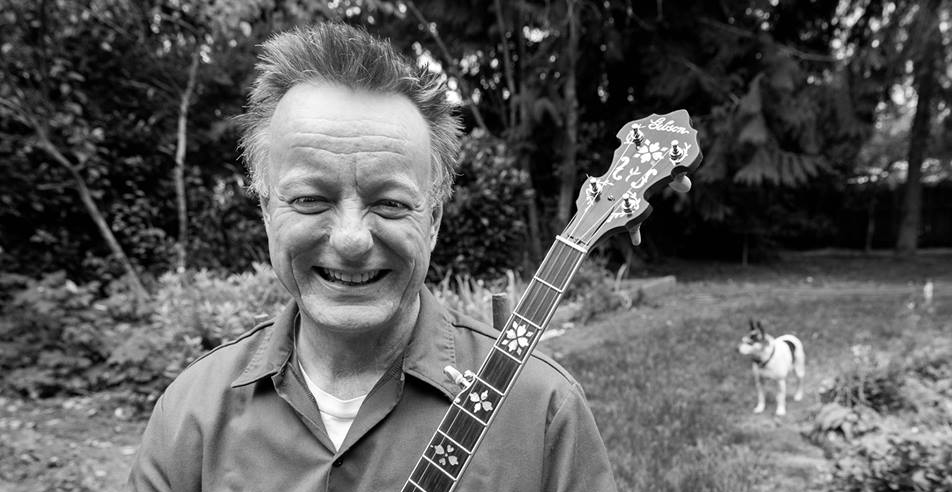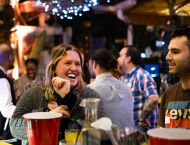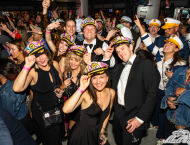Music
 Photo: Monica Frissel via www.facebook.com/dannybarnesbanjo/
Photo: Monica Frissel via www.facebook.com/dannybarnesbanjo/
Danny Barnes Trio Brings Grit To Waterfront
December 7, 2017 @ 12:00am
Pearl Street Warehouse welcomes one of the greatest banjo and bluegrass musicians of his generation this Friday night. Danny Barnes – who along with Joe K. Walsh and Grant Gordy formed the Danny Barnes Trio – has been honing his craft since 1971, back when he was immersed in the music of punk and dub gods. He has transferred that grit into his songwriting, and it surfaces in both his banjo playing and his twangy, dirt-devil accent. He claims his present style is directed toward a “select group of people,” as far as a $20 ticket can be selective. In a recent phone interview, Barnes discussed his artistic approach, cataloged his breadth of experience and told us what to expect from his upcoming show.
On Tap: Will you be playing a lot songs from Stove Up on Friday?
Danny Barnes: We have a lot of tunes from that, especially the new record. But then, I have songs from my back catalog – from this record called Pizza Box and another record called Rocket. Then there’s stuff that Joe and Grant bring in as well. We try to keep things as a bit of a democracy where we try to represent everybody and what they’ve got goin’ on. We try to make a soup out of everybody sort of thing.
OT: How did your trio form?
DB: When you’re out here doing this, you kind of end up meeting everybody after a few years [laughs]. I think we met through camps – teaching at camps, different music camps. They’re friends with Darol Anger, and he’s also one of my friends. They have a band called Mr. Sun that they’re in with [Anger]. It’s kind of a big family thing, you know?
OT: A few years ago, you received the Steve Martin Prize for Excellence in Banjo and Bluegrass, which recognized your many years contributing to the form. How does your current work compare to your work in the past?
DB: [The award] was the biggest honor of my life. I’ve always thought of myself as a songwriter first. What I do is make up music and use the banjo as a way of getting the music out. So the banjo is kind of a pencil. I didn’t really ever look at myself as an instrumentalist, so to speak. That award meant a lot to me in that regard because a lot of the guys on the board were banjo players – very influential guys like Béla [Fleck], Tony Trischka, J.D. Crowe, Alison [Brown] and Steve Martin himself. I felt like it made me rethink my banjo playing; I think it suddenly did change how I do my work. I’ve never done a banjo record [until now]. All my records are song-based records with other musicians or sample-based things where I make things on the computer.
OT: Where do the punk and dub influences turn up in your music?
DB: When I was in high school, the music that was kind of happening was punk rock. Socioeconomically, it was music for people that were kind of broken. That’s what I feel about bluegrass and country music, at its best, and those kinds of things are really for people that have the blues. I think punk rock was like that in a way. It came from [a] socioeconomic disadvantage. So did bluegrass [and] country music in a sense. As far as dub music, when I was learning, I always messed around with tape recorders. At that time, there were all these Jamaican records coming out. They use really basic elements like delay, equalization, tape compression and panning – pretty normal studio stuff. But they sort of played the studio like an instrument. I’ve drawn on both of those aspects quite a bit on a lot of my records.
OT: What are the advantages and disadvantages of playing an intimate venue like Pearl Street Warehouse?
DB: The good thing about it is if people are hip to your references, then there’s a lot of good energy. I’m sort of an underdog of an underdog, an underground of an underground. Typically, I feel like my audience reads books and is aware of things. You have to to know who I am – I’m a pretty small person in terms of status and clout. I don’t have meatheads coming to my shows. We’re really playing for us. It’s kind of like, “If you can catch it, you’re welcome to come along.” We have a better chance playing at a smaller venue with that aesthetic. We’re not trying to entertain the mass. We’re really trying to bring a select piece of art to a select group of people.
OT: Could you describe your relationship with the music and culture of DC?
DB: [I’ve been] coming there and playing there forever since the 80s. I think I’ve played every iteration of the 9:30 [Club]. I’ve played the Birchmere, the Kennedy Center and the Barns at Wolf Trap. DC is great – a lot of great restaurants, easy to get around. Typically a pretty hip audience, you know? People that read. They have pretty good radio support there. You’ve got – is it WAMU? You have kind of a hip audience. There’s plenty of jobs so people can go out.
The Danny Barnes Trio will play at Pearl Street Warehouse on Friday, December 8. Doors open at 7 p.m., show at 8:30 p.m. For tickets, click here.
Pearl Street Warehouse: 33 Pearl St. SW, DC; 202-380-9620; www.pearlstreetwarehouse.com







